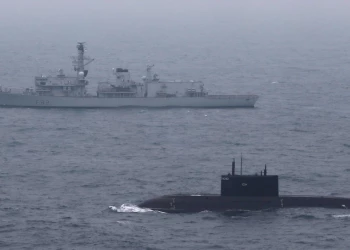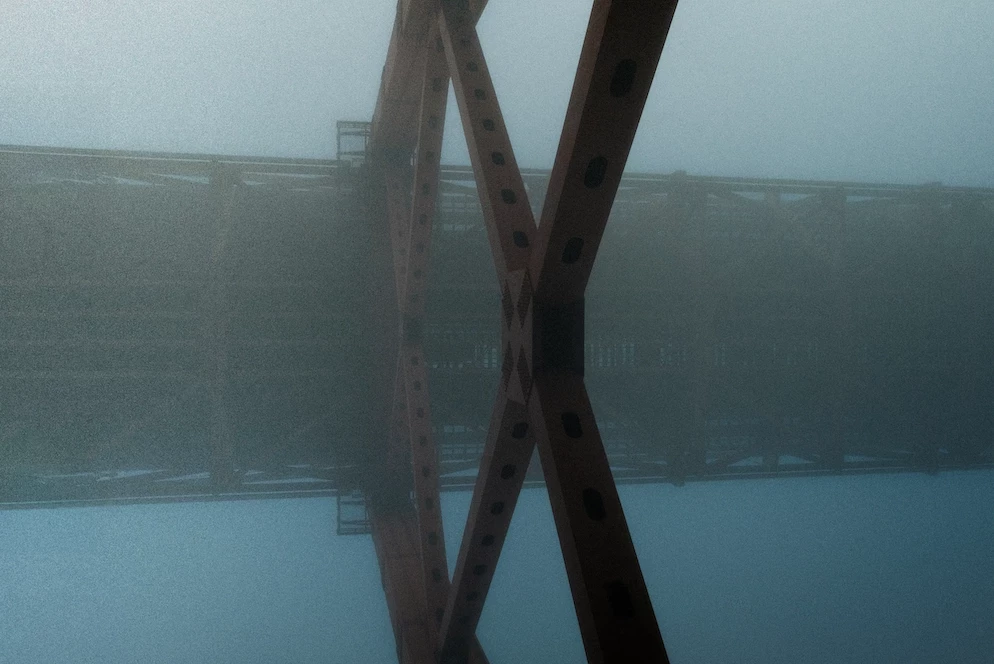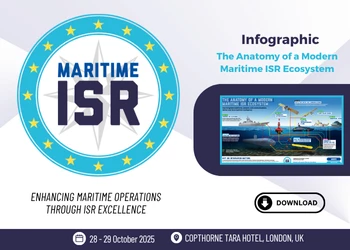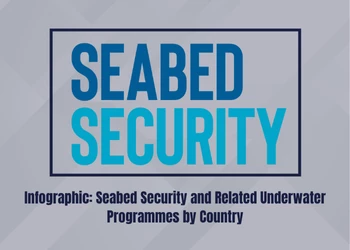NATO and EU concerns escalate over Russian information warfare and propaganda operations
Add bookmarkThe author Bruce Jones has carried out policy assessments as an adviser for the NATO Secretary General’s Office, Downing Street, US groups and UK and other MOD/DODs on emerging threats, future security architectures and intelligence sharing. He is one of the few regularly to cover Russia’s military and the Arctic in IHS Jane’s publications and national and Sunday newspapers, and has worked extensively in the former Soviet Union.
NATO, the EU and individual nations are becoming increasingly perturbed by ongoing disinformation and propaganda warfare operations carried out by the Kremlin in Western countries.
The operations are intended to create and exploit public divisions in order to wear down and manipulate day-to-day political life, and to build the capability to impair and undermine key national and international decision making processes in time of tension.
Their objectives are to condition, control and manipulate public, media and official perceptions and as importantly their responses, through deception, misleading information and substitute themes.
SACEUR and the EU
International concern reached unprecedented levels on 1 March when NATO’s Supreme Allied Commander General Philip Breedlove explained, "Russia is using diplomatic, economic and informational tools and military pressure to shape and influence nations while trying to remain below triggering a military response".
The EU stepped up its efforts to counter Russian disinformation the same day, with the launch of a "Disinformation Digest" analysing pro-Kremlin media positions and key trends in Russia's social media, so that the narratives can be seen in a wider light.
House of Commons evidence
2 March saw evidence on disinformation and propaganda given to the UK House of Commons' Defence Committee. Proceedings started with Keir Giles, Director of the Conflict Studies Research Centre setting out the goals of Russian disinformation as:
- To maintain the power of president Putin;
- To ensure that Russia prevails in any dispute with the west;
- To expand Russia’s position as a global power;
- To exert control over adjacent territories;
- And to break and divide NATO.
James Sherr, fellow of the London-based think tank Chatham House, went on to characterise the Kremlin's stance as within what is long defined in Russian doctrine as the "Initial Period of War" [Nachal'nyy period voyny], in which target states are incapacitated as much as possible before they are even aware any conflict is envisaged.
He added that Sweden, Finland and beyond were now considered to be part of Russia's "peripheral zone of defence".
Mark Laity, Chief of Strategic Communications at NATO's Supreme Headquarters Allied Powers Europe (SHAPE), speaking in a personal capacity, explained that Russia takes a holistic view of confrontation, and that information warfare and propaganda play a central role within it, to further the Kremlin's strategic narrative, objectives and justifications.
The approach he stated was operational and effects based, achieving its objectives by deceiving, delaying, disrupting and confusing Western perspectives and interpretations.
It was he said tailored to satisfy sometimes opposing strands of public opinion, but aligned under an overarching narrative supporting Moscow's strategic goals; with a "pragmatic attitude to the truth".
Defining moment and Angela Merkel
The milestone event drawing attention to the situation came on 11 January when Russia's media ran a story extensively that a 12 year-old Russian girl had been kidnapped and raped for 30 hours by migrants in Berlin. Despite the fact that the Berlin police could find no evidence to substantiate it, the story grew into an international row with Russian Foreign Minister Sergei Lavrov claiming a "cover-up".
On 12 February the German government tasked its intelligence services to investigate the Kremlin's conducting a propaganda campaign with Russian media used to spread disinformation in order to destabilise the country. Chancellor Angela Merkel is reported to have expressed a "personal interest" in the matter. Intelligence sources are quoted as saying that President Putin is suspected of wishing to "sow the seeds of discord in Europe by weakening Germany and Angela Merkel".
In the context of fear of migrant crime, immediately after the widespread assaults against women in Cologne on New Year's Eve, Russian REN-TV showed archive footage of clashes in Cairo’s Tahrir Square, giving the impression that Cologne had been invaded by Arab migrants. Adding to the confusion, one rumour has it that the attacks were carried out by drug addicts hired by the CIA.
Scandinavia
A disproportionate amount of attention appears to be being paid to the Baltic States and Scandinavia.
The disinformation position was set out starkly in Norway's Security Police Service (PST) 2016 Threat Assessment, released on 9 February. It rates Russian intelligence as having the "greatest potential" for harming the country. PST chief Benedicte Bjùrnland judged that: "The aim is to facilitate Russian military dispositions in a future security scenario".
"Some intelligence services are working very aggressively," she said, "and Norway must be prepared for psychological warfare and propaganda operations".
The report details "extensive operations to spread disinformation and propaganda... to influence opinion and weaken confidence in the authorities in target states... and to sow division between groups and regions".
Andrei Kulikov of the Russian Embassy in Oslo said in response that; "We are very disappointed with the report." It was, he said, "a collection of unfounded accusations... nothing more than another attempt to demonise Russia".
Lithuania's media regulator has been taking the Russian-language station RTR Planeta off the air since April for spreading pro-Kremlin "propaganda" and "inciting discord, warmongering and spreading biased information". The company is registered in Sweden with its broadcast material produced by the Russian-owned media company VGTRK.
On 29 February, Finnish Defence Minister Jussi Niinist÷, linking a number if issues including the influx of thousands of asylum seekers from Russia into the country, commented; "We are not at war, although some 'hybrid' influence activities have been observed in Finland". He advised though that Finland was not a military target.
A case in question
One particular case which is currently causing international concern is the rise to prominence and reporting of the Scandinavian-Baltic ultra-right group "Soldiers of Odin" which displays a range of suspicious characteristics.
The apparently autonomous movement suddenly materialised from a number of small extremist groups, conducting anti-immigrant "street patrols" in the Baltic States and Scandinavia on the pretext of protecting local women immediately following the spree of sexual assaults in Cologne on New Year's Eve.
January and February are 'news scarce' months and more attention, because of the timing, was paid in the British press, with repeat articles, to the "street patrols" than in the countries concerned, where far right skinhead and biker gangs are more common.
The movement's ringleaders in each of the counties are mostly in their 20s. Several have long criminal records. Amongst their supporters are said to be members of the armed forces and reserves. The group has challenged politicians, the authorities and the military on how best to address the situation.
How the "Odin" organisation suddenly came into being remains unclear. Estonian former intelligence chief, diplomat and now politician Eerik-Niiles Kross observed on 15 February that although "Odin" was no more than a social media phenomenon, the developments have caused splits between the armed forces, public and police and "can only benefit one nation".
In agitation and propaganda terms the group has already been logged in the international press and their existence makes them ripe for further exploitation and confrontation.
Russian support for extremist groupings
Russia has a track record of sponsoring right-wing groups involved in destabilisation. Ongoing in the Baltic States, and significantly in the build-up to the 2007 fatal riots and cyber attacks in Tallinn, Line KR (Counter-Intelligence) of Russia's Federal Security Service (FSB) placed 'agents provocateurs' within nationalist groups to engineer provocation incidents to be exploited by pro-Moscow organisations including "Night Watch" [Nochnoy Dozor]. Its leaders had 'surveillance-free' meetings beforehand with Russian embassy officials in locations including Tallinn's botanical gardens.
Concerns about covert manipulation are heightened by the Kremlin's understanding and use of these groups on the edge of confrontation. President Vladimir Putin is recognised for his support for 'patriotic' biker gangs, particularly the leading "Night Wolves" formation, with whom he has ridden and which is officially bankrolled by the state. "Night Wolves" stole headlines by threatening to drive en masse to Berlin, through Poland, to mark the May 2015 VE Day commemorations. In Ukraine today it stands alongside separatist militias in Luhansk and elsewhere.
In Russia itself, extreme right and nationalist groups are tolerated far more than in other countries, despite carrying out widespread attacks on racial minorities and gays, including murder. They serve however as an informal resource furthering state purposes, emphasising ethnic Russian ascendency and 'Russian values'.
The presence though in Ukraine of any domestic rightist groups exposed all concerned to exploitable Russian 'pretext' accusations of being fascist, pro-Nazi and anti-Russian, and of government complicity and inaction.
Conclusions
Rebuttals to each item of disinformation can never be achieved. Neither are they always desirable, because of risks of giving credence to accusations or providing an opportunity for escalation.
Delays furthermore can occur in obtaining time-critical, democratically agreed responses, particularly those made collectively by NATO or the EU.
The question now is whether Western countries, together and individually, will take effective steps to raise awareness so that propaganda and disinformation attacks are sufficiently recognised and discounted by the press and public, that they risk becoming pointless or even counter-productive.
Bruce Jones will be running a workshop on the developing threat scenario in Scandinavia and the High North at the Arctic Patrol & Reconnaissance 2016 conference in Copenhagen on the 7-9 June.
[eventpdf]






















